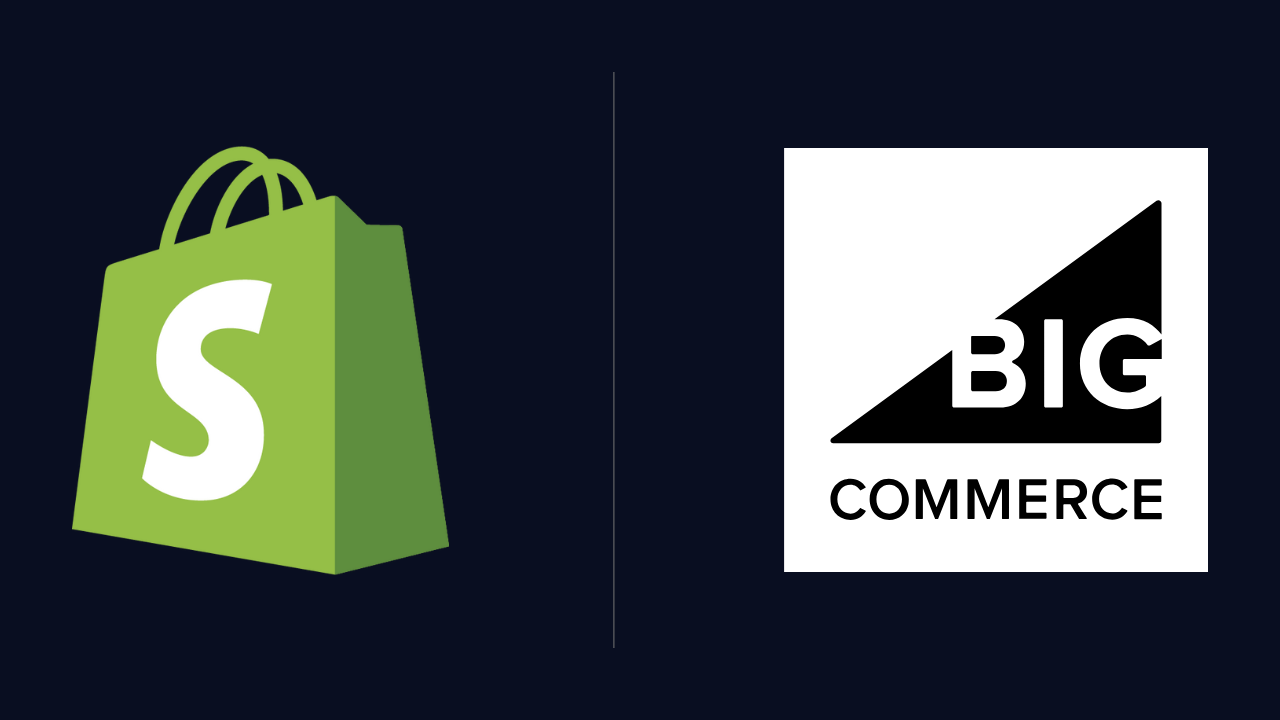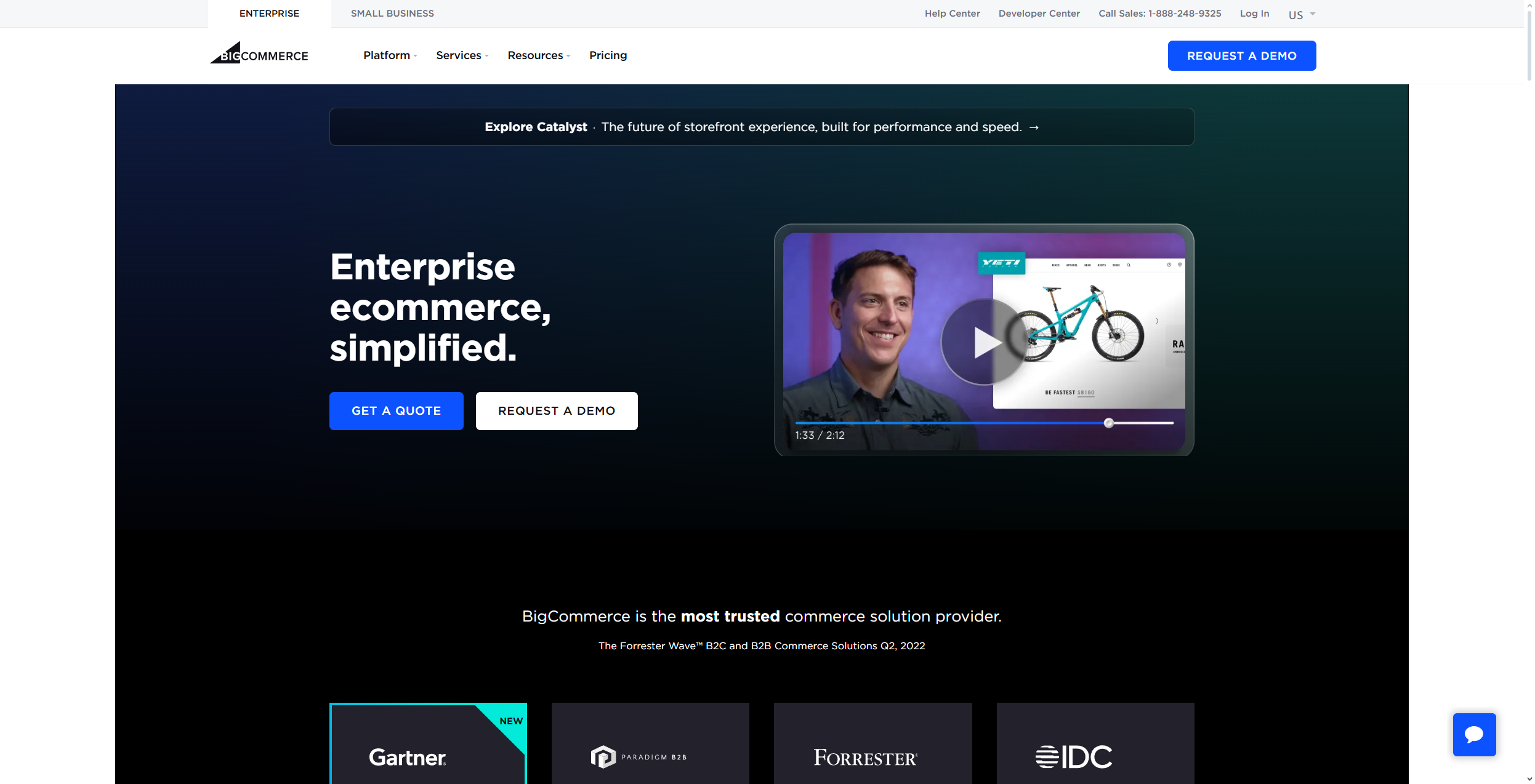When you purchase through links on our site, we may earn an affiliate commission.Heres how it works.
BigCommerceis Shopify’s closest competitor, with its powerful native features and no transaction fees on any plan.
BigCommerce’s recent focus on AR integration and voice commerce demonstrates its commitment to ecommerce innovation leadership.

Both platforms have similar pricing plans, but they are differently positioned in the market according to individual strengths.
Shopify leads the ecommerce platform market with its intuitive interface and extensive customization options.
The platform excels in providing a user-friendly experience while offering powerful features through its extensive app marketplace.

Its recent AI integration and enhanced performance updates make it particularly attractive for businesses prioritizing growth and scalability.
BigCommerce distinguishes itself with comprehensive built-in functionality and enterprise-grade features.
BigCommerce excels as it has ample built-in functionality, which translates to fewer third-party apps compared to Shopify.

Shopify offers similar features, but many of the advanced features require additional apps.
However, its larger app ecosystem provides more flexibility to achieve specific objectives.
Even less technically savvy users can start and run their stores with little help.
BigCommerce is a bit more complicated at first, but it has improved significantly in 2025.
The website has a less complicated installation process and a cleaner dashboard, but it has many features.
This results in users having more options and controls to adjust when getting started.
Overall, Shopify is a bit simpler to use, especially for total beginners.
Shopify vs BigCommerce: Customer support
Shopify revamped its support system in 2025.
It ended the practice of using phone and email support and went AI-first.
Currently, the primary means of accessing support is through an AI assistant on the Help Center.
There is no direct phone support, but the AI assistant is accessible 24/7 online.
For more complex issues, Shopify’s AI can refer users to human advisors.
Social media support and community forums are also available.
BigCommerce offers full 24/7 support through several channels, including chat, email, and US-based phone support.
The platform has a reputation for high-quality technical support staff, who are experts at solving complex issues.
Advanced plan customers receive more personalized support, which is invaluable for large organizations.
Shopify’s security system features numerous fraud protection tools and AI-driven risk assessment capabilities.
The platform offers continuous 24/7 monitoring, perimeter firewalls, and broad protection against any cyber threats.
BigCommerce has advanced security features such as rate limiting measures and suspicious activity checks.
Between security features, both platforms deliver strong protection but in different manners.
While Shopify concentrates on AI-based security components and automated threats, BigCommerce focuses on security infrastructure and standards compliance.
Shopify’s recent platform updates have also improved core functionality.
BigCommerce is noted for its strong built-in capabilities and strong B2B features.
When comparing additional features, both platforms have excelled in customization features and AI integration.
The system supports legacy POS systems and mobile POS options that can be installed on iOS or Android devices.
BigCommerce’s hardware foundation is built on Google Cloud Platform, which provides robust security and scalability.
Third-party payment processors incur additional transaction fees.
The biggest difference is that BigCommerce does not charge transaction fees on top of payment gateways.